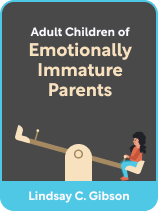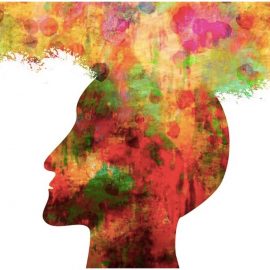

This article is an excerpt from the Shortform book guide to "Adult Children of Emotionally Immature Parents" by Lindsay C. Gibson. Shortform has the world's best summaries and analyses of books you should be reading.
Like this article? Sign up for a free trial here.
What are the effects of childhood neglect on adults? What relationship problems do emotionally neglected adults face?
In Adult Children of Emotionally Immature Parents, Lindsey Gibson explores three challenges common among adult children whose parents neglected them emotionally. They harbor deep emotional loneliness, have emotionally disconnected relationships, and lack self-worth.
Continue reading to learn more about the effects of childhood neglect on adults.
Problem 1: They Feel Deeply Lonely and Don’t Understand Why
Gibson says the first effect of childhood neglect on adults is that adult children of emotionally neglectful parents often feel profoundly emotionally isolated but don’t know why. Many dismiss the feeling because they can’t explain why they feel it when, on the surface, their life seems “normal” or “fine.” This is especially true for adult children whose parents provided basics like shelter, food, and clothes, as they may not view their parents’ emotionally neglectful behavior as unusual or problematic.
Prioritizing their parents’ needs while denying their own and taking on an inauthentic role (as we discussed in the last section) worsens emotional neglect survivors’ loneliness for two reasons. First, it temporarily soothes the emotionally immature parent’s needs but doesn’t actually lead to a more genuine emotional connection with them. Second, when parents require children to be something other than themselves, children can’t forge a genuine emotional connection with others.
Problem 2: Emotional Neglect Survivors Repeat the Cycle of Unhealthy Relationships
Gibson asserts that children who grew up shutting down their feelings often end in emotionally disconnected relationships, because the dynamics feel familiar and there’s comfort in familiarity.
Adult children of immature parents may have a looming feeling that something in their relationship is “not quite right,” but accept that feeling as “normal” because they’re accustomed to feeling empty, lonely, or ill at ease from living with an emotionally disengaged parent. They may also dismiss the feeling because they grew up overriding their emotions in service to their parents’ needs. Because they can’t connect with or trust their own feelings, they may look to others to tell them how they feel.
(Shortform note: Gibson doesn’t explicitly say how emotional neglect survivors can learn to trust themselves, but experts say that building trust in yourself is a learning process. It begins with paying attention to moments in your relationships when you feel angry, ashamed, guilty, or hurt. These are signals that the other person in the relationship may have crossed your boundaries either verbally or through manipulation.)
Problem 3: Emotional Neglect Survivors Lack Self-Worth
Gibson argues that adult children of emotionally immature parents often feel they’re a burden to others because they grew up believing that their feelings were less important than their parents’ emotional needs. The problem can be pronounced in children of emotionally chaotic parents, who never knew if they were going to get “happy” or “angry” mom and, when they got the latter, assumed it was because they did something bad—or because they were bad.
Emotionally underdeveloped parents often fuel their children’s low self-worth by punishing and shaming them for their feelings. This can lead children to fear, have anxiety around, and squash their emotions—even positive ones. Many grow up thinking they can’t ask or rely on others for anything, and that they should be able to handle all their problems on their own.

———End of Preview———
Like what you just read? Read the rest of the world's best book summary and analysis of Lindsay C. Gibson's "Adult Children of Emotionally Immature Parents" at Shortform.
Here's what you'll find in our full Adult Children of Emotionally Immature Parents summary:
- A look at the damage that emotionally neglectful parents can do to their children
- Strategies to help adults turn their relationship with their parent from toxic to tolerable
- Ways to heal and move forward from childhood emotional neglect






